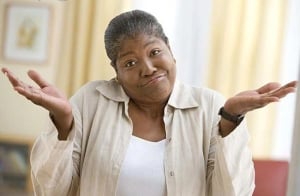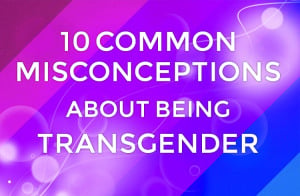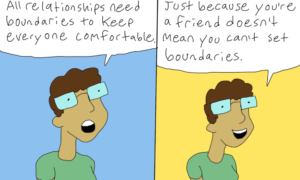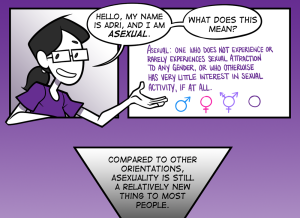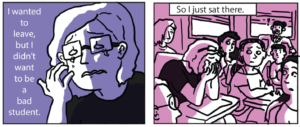I’ve never thought of myself as someone who works “too much.” Even when, as a senior in college, I had three part-time jobs and an internship, I still made time to see my friends and participate in every end-of-college activity.
In a society that’s built on capitalism and prizes the idea that you can achieve anything if you work hard enough, how do we qualify what’s a normal amount of dedication to work and what crosses the line into “workaholic?” Research shows that people in my generation are often workaholics, taking less vacation and sick time than other employees.
It’s not that surprising that I feel like I should always be working. Millennials are twice as afraid of losing our jobs as Baby Boomers are, since many of us either lost our jobs during the recession or were entering the workforce in or right after the economy tanked. We have higher student loan debt and are also facing a rising gig economy, with lower job security and fewer benefits.
These issues impact marginalized people even more. Student debt has a disproportionate impact on people of color, low-income people, first-generation college students, and people with disabilities. Marginalized people are more likely to face employment discrimination (in both blue collar and white collar workforces).
As a white queer person with a disability who was raised low-income, I’ve experienced this firsthand. I’m always terrified that I need to constantly prove myself in the workplace so I’m not judged too harshly because of my disability.
Because I have no financial safety net, I have a pretty legitimate fear of losing my income. All of that pushes me to work longer hours, take on more work-related responsibilities, and prioritize work over other aspects of my life, often to an unhealthy level.
So if you’re looking to get a better understanding, here are some of the ways that marginalized people are uniquely impacted by this era of overworking and workaholism:
1. We feel like we have to prove ourselves in the workplace
Since marginalized people are constantly dealing with systemic oppression, we feel like we need to prove ourselves. Maybe it’s to mythbust stereotypes or show our managers that we’re capable employees, but many of us feel the need to dedicate more and more to our work.
Research shows that marginalized employees really need to do even more to be viewed as competent and capable. Black Americans are heavily scrutinized on the job, which can lead to worse performance reviews, lower wages, and job loss.
“I always feel like I have to prove to all the people who’ve ever made racist or sexist comments that they are wrong about all the assumptions they have,” says Maika Llaneza Beardsley, a one-and-a-half generation Filipina-American who works full-time and is studying for her third and fourth master’s degrees.
Workplaces aren’t always friendly if you’re autistic and physically disabled like I am. I’m often dismayed from the start at all the physical requirements listed on many job applications, including office jobs that aren’t heavy on physical labor.
I can’t stand for long periods of time or carry twenty pounds of supplies from one section of a building to another, yet these are basic requirements that are part of many formulaic job descriptions.
Because people automatically assume I’m at a disadvantage and incapable when they see my cane or watching me struggling to hold a heavy door open, I often work harder and longer hours than other employees. It doesn’t help that many people hold harmful perceptions about autistic people, and I’m afraid of raising accessibility concerns out of fear that I’ll be seen as a problem.
“I still get a surprised reaction from most people when I say I’m in university,” says Eden, a Sociology student and writer currently based in Scotland. “It also makes me frustrated that people expect me to be whatever it is that fits their own preconceived idea of what a brown girl is.”
2. We have a lot to lose
Between employment discrimination, housing insecurity, the fact that we’re more likely to live in poverty, and often significant wage gaps, marginalized people have a lot at stake when it comes to our jobs.
Many disabled people, for example, rely on workplace-sponsored healthcare to get their basic needs met, and wouldn’t be able to afford insurance on their own (and public insurance might not cover everything).
“As a millennial with multiple disabilities, I dread the thought of not being able to work anymore,” says Rachel Miyazaki, a Creative Production Assistant for Rooted in Rights, a disability media advocacy organization.
“Medical bills are expensive as it is. How am I supposed to have enough money to raise children and support their goals if I can barely support myself? How am I supposed to take care of my parents when they get older?”
When you’re marginalized, you’re not only doing the best work you can—you’re also doing it despite (and inside of) a system that wasn’t designed for your success.
Research shows that escaping poverty requires nearly 20 years with nothing going wrong, which is a statistic that I think about all the time. I grew up in the projects and was raised by a disabled low-income single mom, so if I don’t have a stable income I don’t have my parents’ savings accounts to fall back on.
3. We’re less likely to be taken seriously if we seek help or healing
Marginalized people might not have access to comprehensive health care if we want to seek medical treatment for the negative impacts to our health from working too much, or simply address the work addiction itself.
And even if we have access, we’re not as likely to be taken seriously or prioritized by medical professionals once we do seek treatment. Disparities in health care are real, and people of color (especially Black people) frequently face discrimination while seeking treatment.
4. It might not even be possible for us to stop
I would love to seek genuine healing from my tendency to overwork, but the reality is that while I can cut down on my freelance work somewhat, I still need a certain amount of money to live and thrive.
Being disabled is expensive, and I’ve noticed how much more I’m able to truly focus on my health than I could when I was poor and my family was living paycheck to paycheck.
In mid-March, I was in so much pain one freezing, cold night that I couldn’t walk the half mile from the train station back to my apartment. Fortunately, I have a pool of money set aside for what I call “disability emergencies and conveniences” so I took an Uber home.
When I was poor, that wouldn’t have been an option, as I was often counting change and returning items to the store so I could make my finances last until my next pay day.
Marginalized people also often feel like we have to put work first above all else, often as a survival strategy. “Because I’m physically disabled, I often feel like I have to conserve my limited energy for school or work,” says Grace Lapointe, a disabled writer from Massachusetts.
If you’re working overtime out of necessity, it can be even tougher to put your physical and mental health first. Low-income people might be working multiple jobs to make ends meet, or feel like they have to put in more hours at a salaried position despite not being paid extra for that time because they don’t want to be fired.
*****
Once I realized I had a problem with workaholic tendencies, I worked on cutting back in ways that made sense for my situation. Part of my problem was that I’m so invested in the work I do; I love what I do, and it’s easy for me to make work my entire identity.
When I’m working, I feel like I can overcompensate for how people judge my abilities and I’m finally being seen for what I can do instead of what I can’t.
I have worked healing and self-reflection into my work routine. If I’m about to spend more hours than I need to working—after I’ve already put my best effort into work for that day—I’ll ask myself why I’m doing it.
Are there freelance jobs I can cut down on or ways I can achieve my tasks more efficiently? How long has it been since I took a day off, and can I afford to take one off? If it’s the weekend, why am I checking in or doing work?
Is this necessary for my survival or a sacrifice I’m making to save up for something, or am I just doing it because I feel I should never be able to rest? What are some small ways I can build rest and healing into every day, even on days when I do need to work? Can I say yes to this deadline, or will I need an extension?
In a capitalist society, many of us need work to survive and marginalized people often need to work harder, smarter, and longer to prove ourselves in the workplace. But we shouldn’t have to sacrifice our well-being, physical and mental health, and personal lives for our jobs, no matter how much we’re told that we need to.
[do_widget id=’text-101′]
Alaina Leary is an editor, book publicist, and activist from Boston, Massachusetts. She’s a social media editor for the nonprofit We Need Diverse Books, and has an MA in publishing from Emerson College. Her work has been published in The New York Times, The Boston Globe Magazine, Teen Vogue, The Washington Post, Vice, Cosmopolitan, The Rumpus, and more. Twitter/Instagram: @alainaskeys.
Search our 3000+ articles!
Read our articles about:
Our online racial justice training
Used by hundreds of universities, non-profits, and businesses.
Click to learn more






